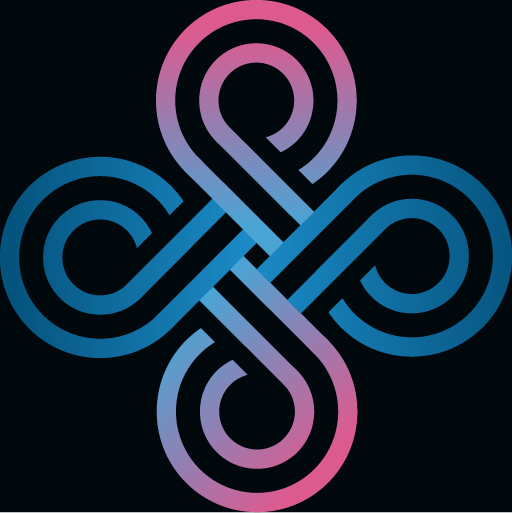The Invited Philosopher
Iara
Menu
- Dinner Appetizer: Sesame seaweed crunch cabbage salad with a toasted sesame ginger vinaigrette
- Dinner Main Dish: Scallops in garlic, parsley, mustard sauce with basmati rice
- Dessert: Chocolate and caramel ice cream*
- Drinks: Jumilla Translations Red Blend*
*Courtesy of Iara
The Philosophy
René Descartes, famously defined the essence of “being” as “I think, therefore I am” pointing to our thoughts as the source of our identity. Jean-Paul Sartre, as discussed in our 3rd dinner, by contrast with Descartes, defines the “I am” as a consciousness that is either nothing, such as before birth and after death, because it is free of judgements, or it is a “beingness” that is formed from judgments and thoughts. Eckhart Tolle, a spiritual teacher, expands on Sartre’ statements by asking: What did Sartre mean when he wrote “The consciousness that says ‘I am’ is not the consciousness that thinks.”?
The Summary
Tolle asks us to consider that:
When you are aware that you are thinking, that awareness is not part of thinking. It is a different dimension of consciousness. And it is that awareness that says “I am.” If there were nothing but thought in you, you wouldn’t even know you are thinking. You would be like a dreamer who doesn’t know he is dreaming. You would be as identified with every thought as the dreamer is with every image in the dream. Many people still live like that, like sleepwalkers, trapped in old dysfunctional mindsets that continuously recreate the same nightmarish reality. When you know you are dreaming, you are awake within the dream. Another dimension of consciousness has come in.
Tolle states that this new dimension, the “observer” dimension, as long as it is free of judgement, is who we really are.
Analysis
The Ego, the Observer, and the Thinker
Many of us do not know that we have an awareness, an energy or entity, separate from the mind, that observes our thoughts and emotions, because most of us are too engrossed in our thoughts and feelings, to notice we are constantly thinking. That awareness is “The Observer”. The mind that thinks incessantly is “The Thinker”. Iara and I were trying to pinpoint whether the “ego” is the same as the thinker or is distributed between observer and thinker. By ego, most people mean the narcisstic, vain aspect of our identity. However, Tolle, defines the “ego” as anything that strengthens our identity as a “unique” person, be it material possessions we call “mine”, or any life condition that defines us, like being a parent, or being divorced, our career, and also negative conditions, such as having a disease, or a difficult life or being misunderstood, even having a bad personality. I know people who are proud of being called “grumpy”.
I agree with Tolle and with Sartre that our true being is “nothingness” and that in our true state of being we are just the “awareness” of being but are not aware of being anything in particular. Sartre argues that we are free when we are nothing because it is our natural state of being. Tolle advises us to notice how peaceful, blissful, happy and inspired our existence becomes when we drop the ego and live in this state of awareness that is beyond the physical world and its forms. He calls it living in the formless world.
Therefore, the ego exists only in the realm of The Thinker.
When people tell me or I hear them advise each other: “Just be yourself”, I always cringe. The translation of that phrase really means: “Feed your ego”. Instead, I think we should advise each other: “Just be no-self”.
How much of the Ego is Vanity or Narcissism?
Iara believes that we all indulge in the sin of vanity at different times and at different levels and we all have a narcissistic side to us, however, it does not mean that we all have the disorder that is defined in psychology as “narcissistic personality disorder”. The ego is easy to spot when we are proud, but the ego is also quite large when we feel or act like a victim. Anything that gives us a specific identity that we cling to, often unconsciously, grows the ego.
Iara shared this parable that exemplifies how sneaky our ego is in wanting to feel “special”:
In the bible, Saint Anthony was said to have been withstanding the temptations of the devil for a long time. The devil was at his side the whole time, trying one trick after another to tempt and seduce him. Saint Anthony would spend day and night praying to have the strength to resist the devil. Finally, the devil gave up and left. It was then that God declared Saint Anthony a saint. Saint Anthony was ecstatic, fell on his knees, raised his arms to the sky and exclaimed: “Finally, I am saint!”.
Upon hearing that, the devil smiled, and came back.
Is the Ego Useful for Anything?
Iara was very adamant that yes, the ego is useful for many things or rather tasks, specifically to execute daily chores and to plan. Tolle agrees with that and so do I. Without the ego, we would not have the impulse to get out of bed, and either go to work, or clean the house or pay the bills. Perhaps, the problem with the ego is the motivation. The ego always wants something, it is in a state of “wanting and needing” as Tolle describes it. It is because of that, that we need to be vigilant about what it wants. Iara also pointed out that the ego needs to be controlled. I agree with that. I see the ego as a wild dog that barks up every tree and needs to be trained to walk on a leash. Not allowing the ego to take over, not allowing my mind to chase after unnecessary thoughts, has been the most difficult but most fulfilling learning experience of the last years. It is fulfilling because it allows me to feel the other energy in me, that quiet awareness that brings peace and happiness. My greatest wish is that more people on this planet learn to walk their ego on a leash.
An actor who plays a king knows he is not the king. We should also know we are not the role we play.
― Gen Kelsang Tashi

